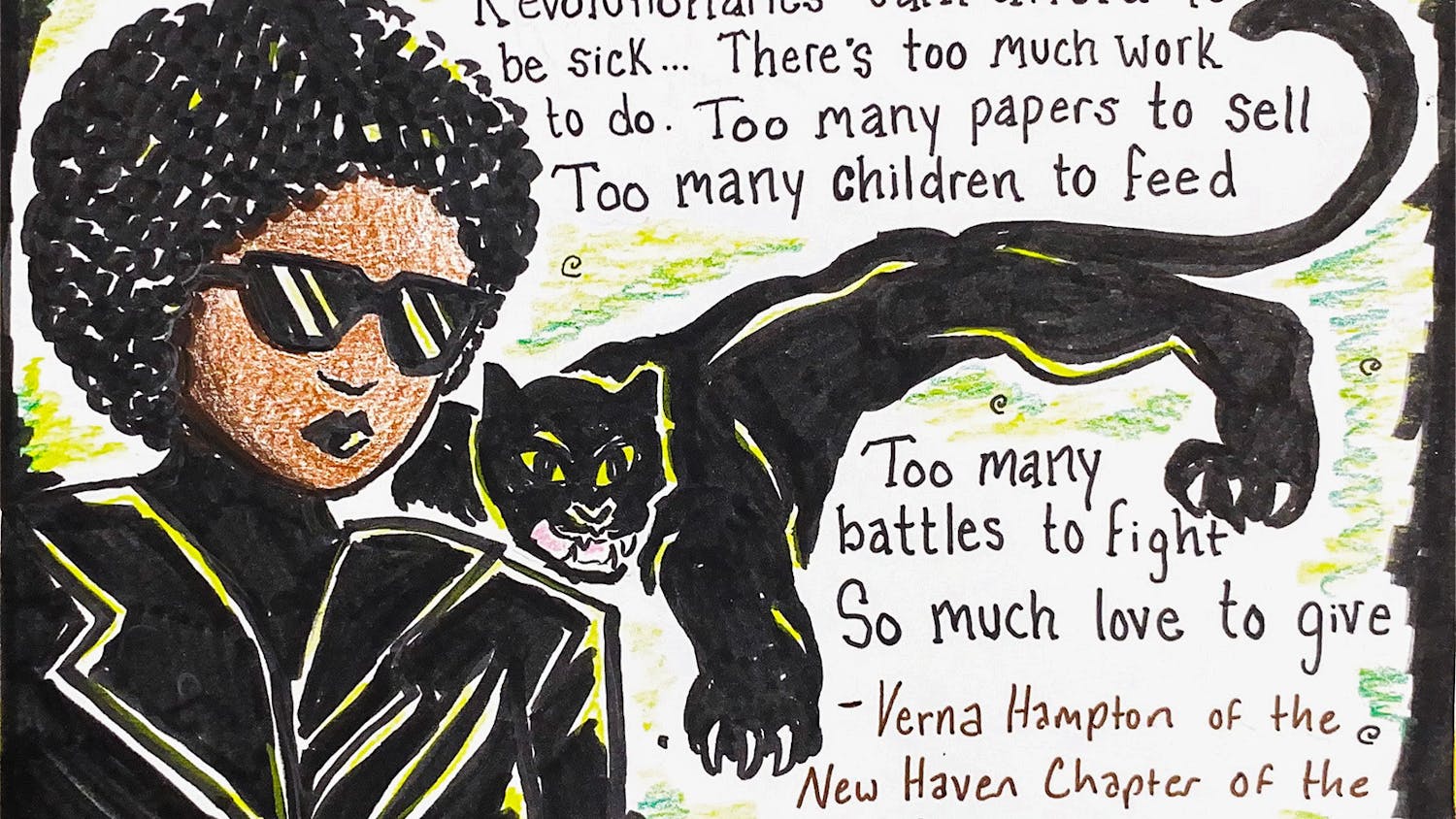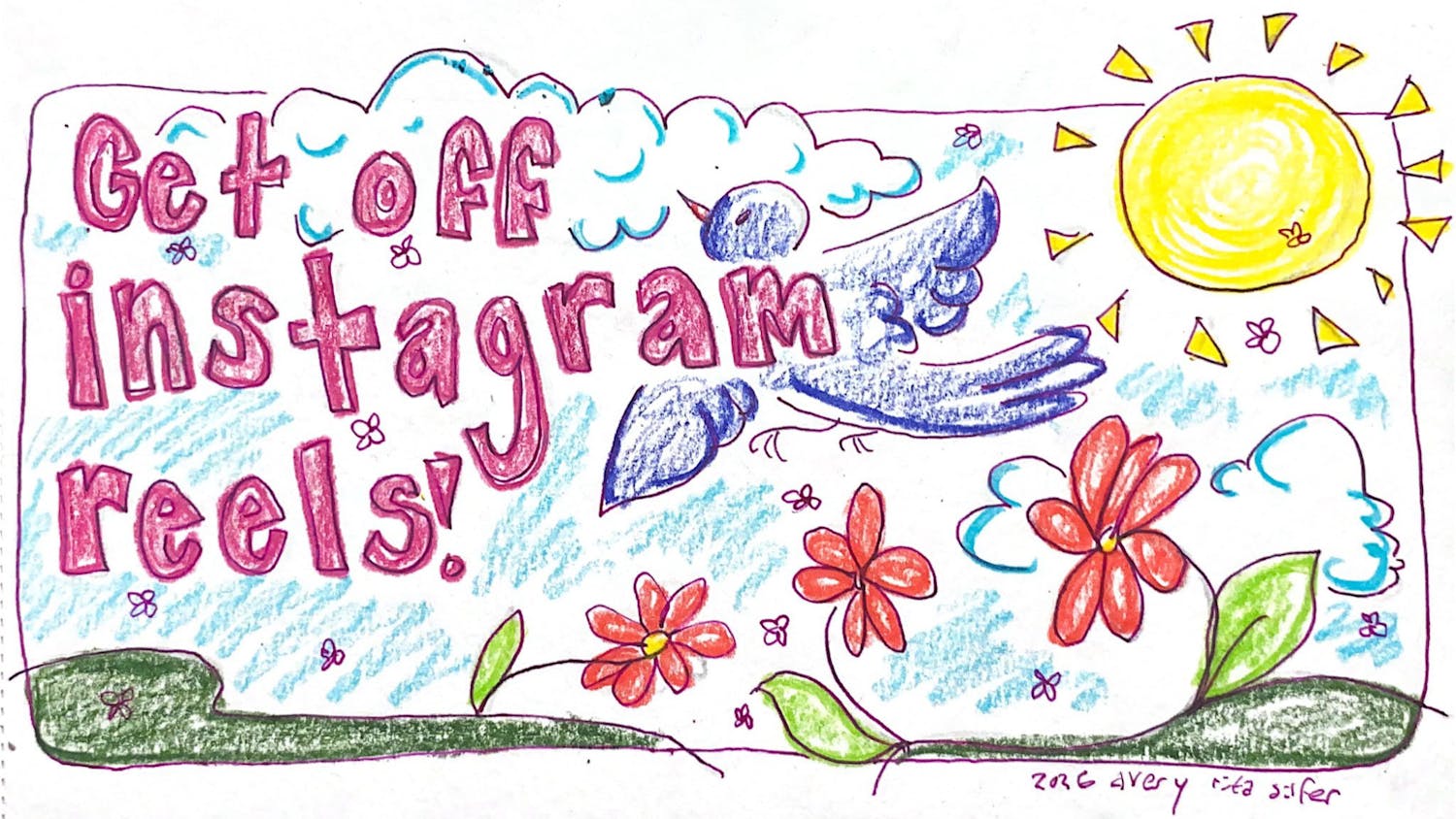UNM professors gathered at Clark Hall via Zoom and in person on Thursday, March 3 to host a teach-in to discuss the ongoing war in Ukraine. The professors offered their perspectives as experts in their respective historical, political and linguistic fields and spoke on the issue through a question and answer panel.
The current conflict began on Feb. 24 when Russia began a military invasion in Ukraine. Ukrainian forces have continued to fight back against the ongoing Russian invasion.
The format of the panel was structured with a moderator who asked specific questions for the panelists, ranging from explaining the conflict and why it is unfolding to more of the historical and cultural context of the situation.
One person asked how much NATO was involved in causing the current invasion. NATO was created to be anti-Soviet, according to Mark Peceny, professor of political science and dean of the College of Arts and Sciences. He said this legacy has carried through today and Russia views Ukraine becoming a member of NATO as a threat.
If NATO becomes directly involved, it could cause nuclear components to enter into the conflict, Peceny said. He said Ukraine has instead applied to the European Union, which is a lesser threat to Russia but still seen as a tie to the West, which Russia would see as a threat to its sovereignty
The connection between Russia and Ukraine has also been a point of confusion, as Putin has falsely claimed that Ukraine was never a sovereign state. Melissa Bokovoy, a history professor, said while the two nations have a history that is intertwined, that does not negate the fact Ukraine has been and continues to be a sovereign nation.
“That was to use the method of historical distortion and factual fallacies to allude that Ukraine essentially does not exist as a sovereign state,” Bokovoy said.
In 1991, there was a large movement for the derussification of the nations that had once been a part of the Union of Soviet Socialist Republics, including Ukraine, according to Tanya Ivonova-Sullivan, a professor of Russian studies. Ivonvova-Sullivan also noted that Ukrainian is the Ukrainian national language even though Russian is widely spoken throughout Ukraine.
“Language identity does not equal language practices,” Ivonvova-Sullivan said.
Yury Bosin, a political science professor, clairifed the motives for Russia's invasion of Ukraine. Bosin brought up that Putin has claimed that his motives are to “demilitarize and denazify” Ukraine and that Putin has, however, equated facism and Nazi ideaology with pro-Westernism. Any real incidents of neo-Nazism in Ukraine have been extremely minor and irrelevant to the larger issue at stake, according to Bosin.
Many Ukrainians seeking refuge from the air raids that are being imposed upon them are fleeing to Poland, according to Professor Lenny Ureña Valerio, a scholar of Polish studies. Valerio said the borders between Poland and Ukraine have crossed each other at many points throughout history and, thus, there is a strong brotherhood between the two.
In terms of the United States’ response to the conflict, Gergely Guszmann, a visiting Fulbright scholar, said the sanctions have not been the most well thought-out. The central banks have been both blocked and frozen, but this might push Putin to go nuclear, Guszmann said.
Get content from The Daily Lobo delivered to your inbox
“President Biden said that, ‘Okay, we're not gonna fight a nuclear war,’ right? That's why we impose sanctions, but some of those sanctions, I believe, can push Mister Putin over the edge,” Guszmann said.
There have not yet been any sanctions on Russian oil and gas, as there has already been an increase in oil prices that the Western nations are not yet ready to bear the effects of, according to Guszmann.
There are several ways the recent invasion on Ukraine could end, according to Bosin. He described a few scenarios where a puppet government or a pro-Russian politician is elected in Ukraine, but, ultimately, he is not optimistic about a peaceful resolution.
“When it comes to negotiations, we also should understand that Putin does not want to lose face … because of all these disruptions, because of these sanctions (that) are crippling the Russian economy. Now he has to show something for it,” Bosin said.
Madeline Pukite is a beat reporter at the Daily Lobo. They can be contacted at news@dailylobo.com or on Twitter @maddogpukite






